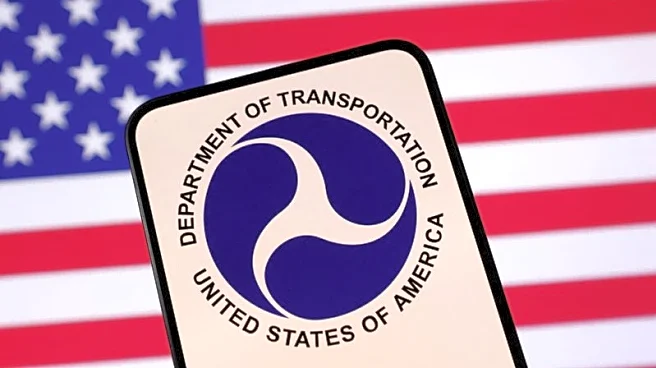Rapid Read • 8 min read
Delegates from around the world have gathered in Geneva for a crucial meeting aimed at finalizing a landmark treaty to combat the escalating plastic pollution crisis. This marks the sixth negotiation session, with hopes that it will be the last. The treaty seeks to address the full lifecycle of plastic, including production, design, and disposal. A significant point of contention is whether the treaty should mandate reductions in plastic production, a proposal opposed by major oil-producing nations who argue that redesign, recycling, and reuse are sufficient solutions. Luis Vayas Valdivieso, chair of the negotiating committee, emphasized the urgency of the situation, noting the global impact of plastic pollution on ecosystems, human health, and vulnerable communities. The meeting is seen as a pivotal opportunity to establish a legally binding international instrument to end plastic pollution.
AD
The outcome of these negotiations could have profound implications for global environmental policy and the plastic industry. A successful treaty could lead to significant reductions in plastic production, impacting oil-producing countries and industries reliant on plastic manufacturing. Conversely, failure to reach an agreement could perpetuate environmental degradation, affecting biodiversity, human health, and economies dependent on clean oceans and tourism. The treaty's success is crucial for small island nations and coastal communities, where plastic pollution directly threatens livelihoods and food security. The U.S. position, which opposes production caps, highlights the complex balance between environmental protection and economic interests.
Negotiators face the challenge of reaching consensus on contentious issues, such as production limits and chemical regulations. The possibility of adopting opt-in or opt-out provisions is being discussed to avoid a stalemate, though this approach risks diluting the treaty's effectiveness. The session, scheduled to last 10 days, will involve intense discussions among delegates, industry representatives, and environmental groups. The outcome will determine the next steps in global efforts to tackle plastic pollution, with potential impacts on international trade and environmental standards.
The negotiations underscore the ethical and cultural dimensions of plastic pollution, particularly its disproportionate impact on vulnerable communities and Indigenous peoples. The treaty's development reflects broader shifts towards sustainable practices and international cooperation in addressing environmental crises. The involvement of major corporations in supporting production reductions indicates a growing recognition of corporate responsibility in environmental stewardship.
AD
More Stories You Might Enjoy











